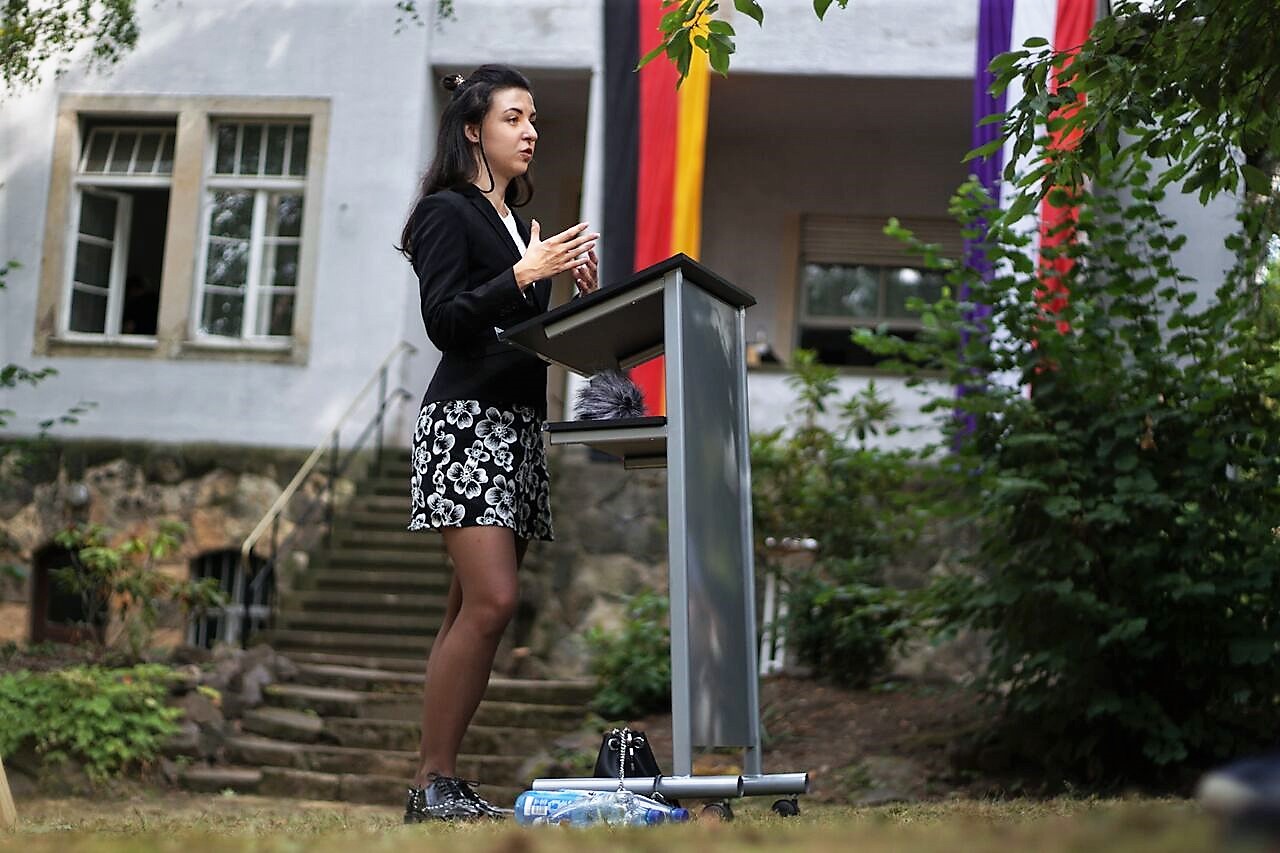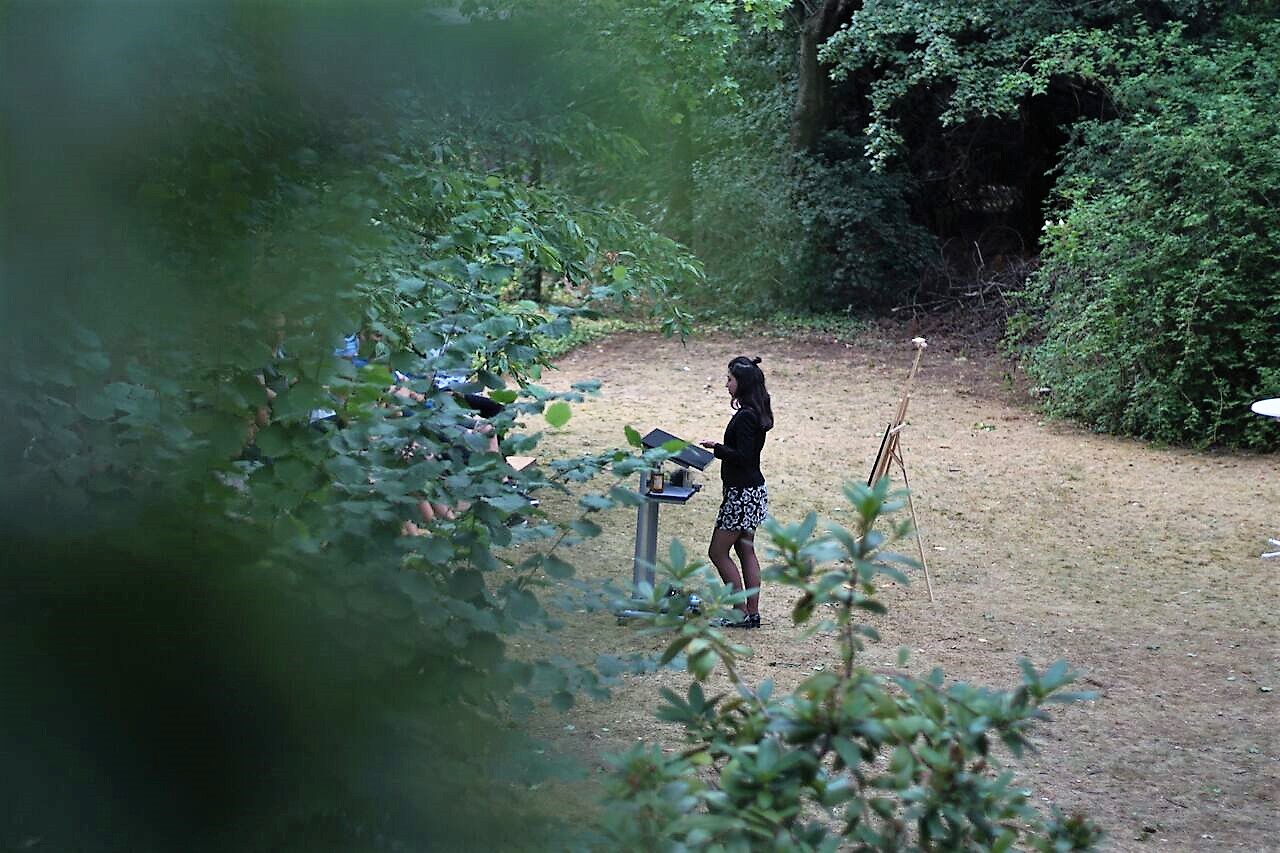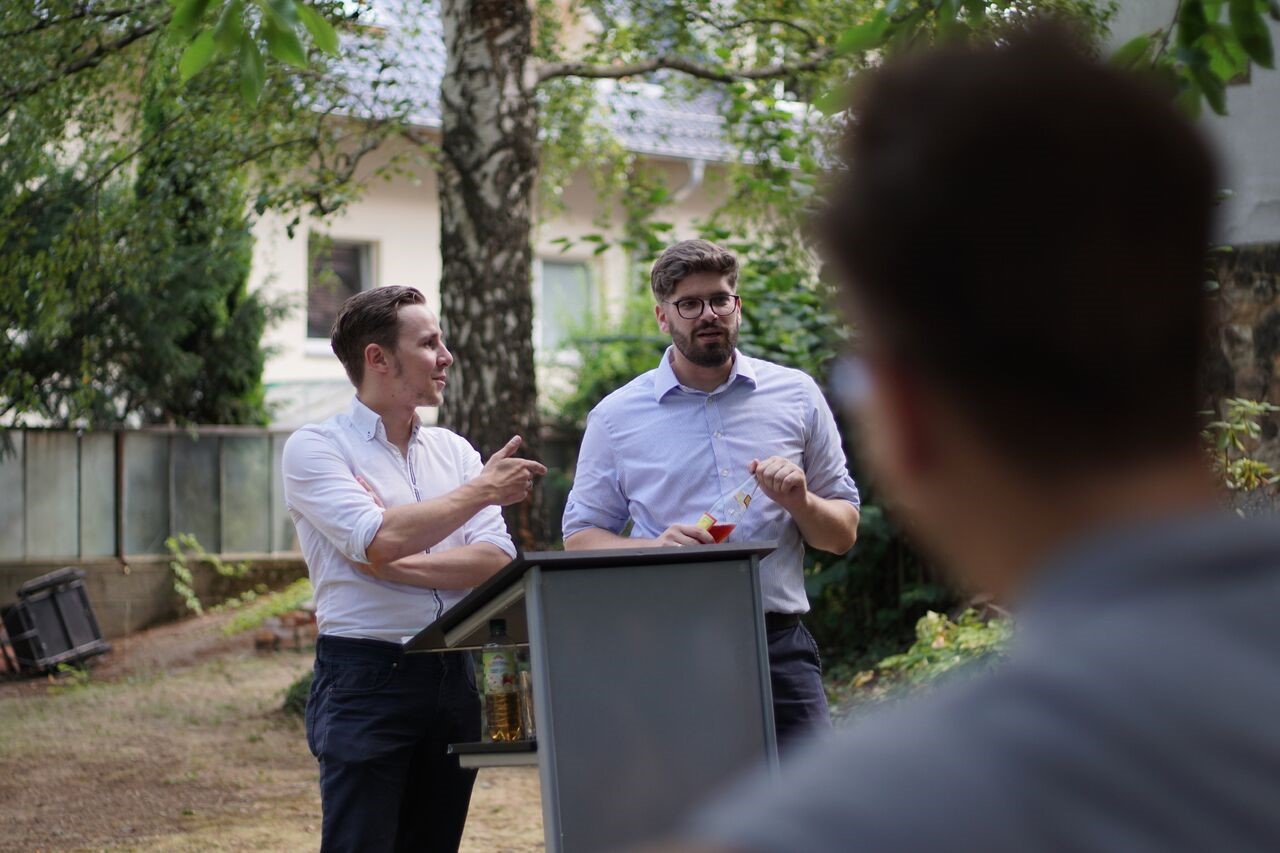On March 18, amidst the forced isolation of the countries in Europe and worldwide, a momentous event took place in the German-Ukrainian intellectual space beyond not only geographical but also time limits. Namely, the completion of the German translation of “Natiocracy” (1935) by the Jungeuropa Verlag (Young Europe publishing house) – the cult opus magnum by Mykola Stsiborsky (1897-1941), a Ukrainian participant of the First World War, an activist of the UNR (Ukrainian People’s Republic) and the UVO (Ukrainian Military Organization), a leading OUN ideologist (Organization of Ukrainian Nationalists), a lieutenant colonel of the UNR Army and a publicist (who was liquidated by the Soviet special forces).
Laying the bridge between the generations, the preface to the edition was written by Mykola Kravchenko, who not only holds a PhD degree in historical sciences but is also an active participant in the novel national liberation struggle: a board member of the “Patriot of Ukraine” organization (2005-2014), a participant of the Revolution of Dignity (2013/2014) and shortly thereafter of the first volunteers’ fight in the Rymarska Street which gave birth to the National Volunteer Day (March 14), Chief of Staff of the Black Corps Guerrilla Squad, officer of the Azov Battalion, then Regiment (2014), First Chief of Staff of the Azov Civil Corps (2015-2016), co-founder of National Corps (since 2016) and a leading ideologue of the Azov Movement.

It is not accidental that the connection between generations of Ukrainian nationalists is of interest to the German identitarians: continuously communicating with the representatives of the National Corps, they found out not only the true driver behind the “Euromaidan” revolution and the vanguard of resistance to the Russian aggression in the Donbass but also the program of reviving Europe starting with its eastern borders. In August 2018, Olena Semenyaka, international secretary, board member of National Corps and coordinator of the Intermarium Support Group, attended a three-day forum in Dresden to give a comprehensive lecture on the prospects of the Intermarium and its importance for Western Europe. The event for identitarians and members of other political organizations was hosted by the same Jungeuropa Verlag under the direction of Philip Stein.


In the light of the triumph of transnational capital and freelancing, one of the main pillars of the Natiocarcy, the solidarity of socially useful strata, may sound naive. On the other hand, the challenges of the pandemic and the equally dangerous for Ukraine crisis of competence in all spheres of power make Stsiborsky’s guidelines not so remote. It is suffice to mention a reform of the parliament based on a professional principle, which would prevent not only lobbying for private business interests but also capitulation in the Donbas within the current system of purely technical parties. In addition, let us cite an apt observation by M. Kravchenko that the author of “Natiocracy,” the most exemplary document of the Ukrainian Third Way, significantly got ahead of his time: “Having published “Natiocracy,” Mykola Stsiborsky not only created his own national conception; he subjected to objective and constructive criticism from the Right the world’s leading social and political conceptions of that time: Fascism and National Socialism. And he did it in 1935, long before the denazification tendency introduced after the Second World War… The Ukrainian counterpart appeared 30 years earlier than Julius Evola’s book “Fascism: Criticism (View) from the Right.” Following in Stsiborsky’s footsteps today by developing local varieties of a common socio-philosophical doctrine is the task for a new generation of patriots, Ukrainian and German alike.
In anticipation of the pandemic’s decline, we begin planning presentations and other forms of cooperation with our German allies who have spent many months making a high-quality translation of a vocabulary which is not always understandable even for the modern Ukrainian reader.
The German version of Natiocracy is available for pre-order at:
https://www.jungeuropa.de/detail/index/sArticle/190

Cover design by Dmytro Zhuravel.








